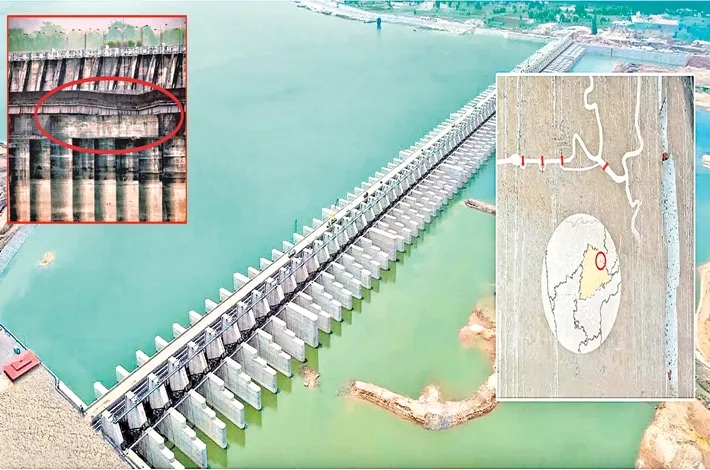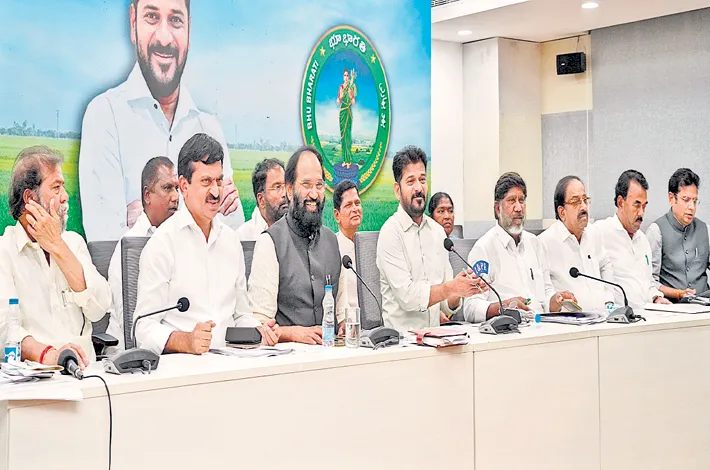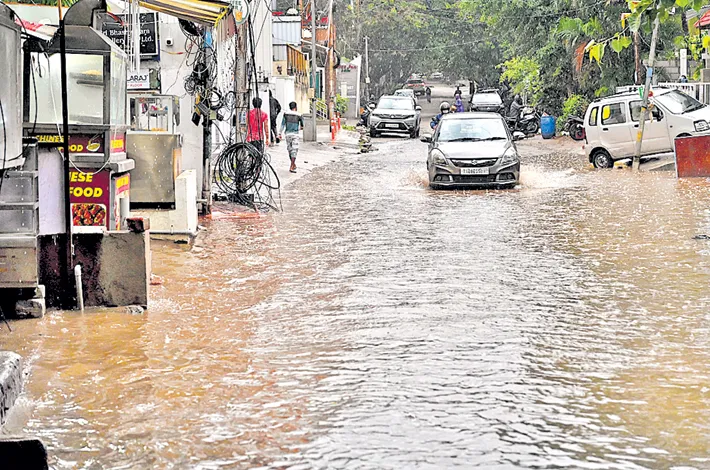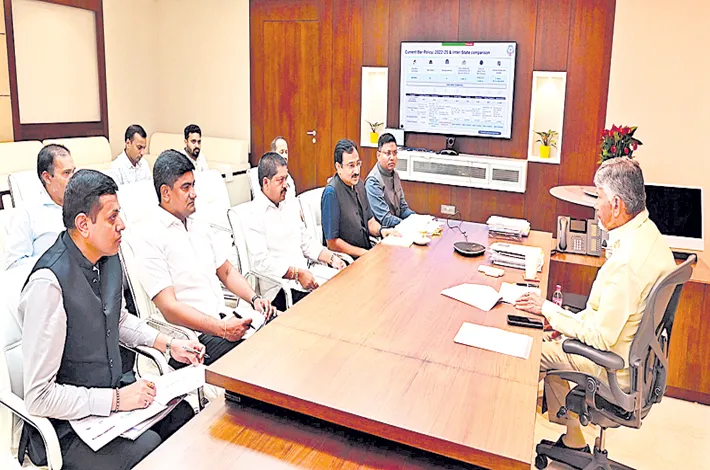The Gujarat liquor scam
04-08-2025 12:00:00 AM
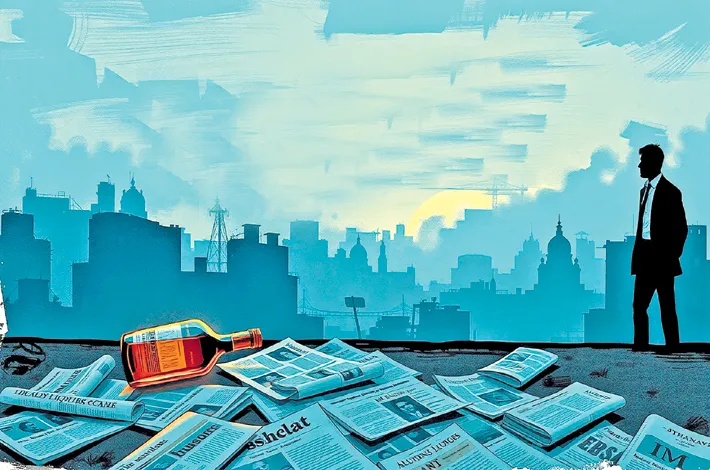
In the arid sprawl of Gujarat, where prohibition had choked the land dry since 1960, the night hummed with secrets. The state’s ban on liquor made it a smuggler’s paradise, and Rakesh Solanki thrived in its shadows. A wiry man in his thirties with a scar snaking down his left cheek, Rakesh was no ordinary bootlegger. He was a phantom, slipping through the dunes and salt flats, delivering crates of illicit whiskey to desperate men in Ahmedabad’s underbelly. Tonight, though, the air felt heavier, the stakes sharper. A big shipment was coming in from Rajasthan, and whispers of a police crackdown had reached his ears.
Rakesh crouched behind a crumbling wall on the outskirts of Bhuj, his eyes scanning the horizon. The desert stretched endlessly, bathed in moonlight, its silence broken only by the distant howl of a jackal. His partner, Vikram, a stocky ex-wrestler with a nervous twitch, checked his watch. “They’re late,” Vikram muttered, wiping sweat from his brow despite the cool night.
“Patience,” Rakesh said, his voice low. “The truck’s carrying 500 liters of IMFL. Worth 20 lakhs. You want to rush and get us caught?” Indian Made Foreign Liquor was the lifeblood of their trade, smuggled across state lines in hidden compartments or disguised as milk cans. Gujarat’s thirst was insatiable, and Rakesh’s network of runners, bribable cops, and discreet buyers kept the liquor flowing.
Headlights flickered in the distance, slicing through the dark. Rakesh’s pulse quickened. The truck, a battered Tata 407, rumbled toward them, its engine coughing like a dying beast. But something was off. The truck slowed too early, its lights dimming as it veered off the dirt path. Rakesh’s gut twisted. “Ambush,” he hissed, grabbing Vikram’s arm. Before they could bolt, floodlights blazed from behind a dune, pinning them in blinding white.
“Police!” a voice barked. “Hands up! You’re surrounded!”
Vikram froze, his eyes wide with panic, but Rakesh’s mind raced. He’d greased too many palms for this to be a random bust. Someone had talked. The truck driver, maybe, or that new runner, Jignesh, who’d been asking too many questions. Rakesh raised his hands slowly, calculating. The cops were close—six, maybe seven, judging by the shouts—but the desert was vast. If he could make it to the salt marshes, he’d vanish.
“Move, and you’re dead!” Inspector Arjun Desai stepped into the light, his khaki uniform crisp despite the dust. Desai was a problem. Unlike the local cops Rakesh paid off, Desai was a bulldog, incorruptible, with a vendetta against the liquor mafia. Rakesh had heard stories: Desai once chased a smuggler 30 kilometers on foot, dragging him back in cuffs. The man’s eyes glinted now, locking onto Rakesh like a hawk spotting prey.
“Solanki,” Desai said, smirking. “Thought you were smarter than this.”
Rakesh kept his face blank. “Don’t know what you’re talking about, Inspector. Just out for a walk.”
Desai snorted, motioning to his men. Two constables dragged the truck driver from the cab, his face bloodied. “Your man here sang like a bird. Told us about your little operation. Where’s the drop point?”
Rakesh’s jaw tightened. The driver, Mahesh, was a weak link. He’d warned Vikram not to trust him. Now Mahesh’s betrayal could bury them all. Vikram shifted beside him, his twitch worsening. Rakesh shot him a look: Stay calm. If they played this right, they could still slip away.
Desai’s radio crackled. “Sir, we found the crates. Hidden under a tarp in the back. Whiskey, gin, the works.” The constable’s voice was triumphant. Desai’s smirk widened. “You’re done, Solanki. Twenty years, minimum.”
Rakesh’s mind churned. The drop point was a derelict warehouse 10 kilometers east, where his buyer, a Surat businessman named Patel, waited with cash. If the cops reached it, they’d seize the liquor and his entire network would unravel. He needed a diversion. Now.
“Vikram,” Rakesh whispered, barely moving his lips. “The flare.”
Vikram’s eyes flicked toward him, confused, then widened with understanding. Tucked in his jacket was a signal flare, meant for emergencies. Rakesh gave a slight nod. Vikram hesitated, then reached for his pocket, slow enough to avoid suspicion. Desai was distracted, barking orders to secure the truck. In one fluid motion, Vikram yanked the flare, struck it, and hurled it toward the dunes.
The night exploded in red light, sparks hissing across the sand. The cops shouted, shielding their eyes. Rakesh bolted, dragging Vikram toward the marshes. Gunshots cracked behind them, but the flare’s glare threw off the cops’ aim. Rakesh’s legs burned as he sprinted, the salt flats gleaming under the moon. The marshes were close—muddy, treacherous, perfect for losing pursuers.
“Split up!” Rakesh hissed. Vikram veered left, vanishing into the dark. Rakesh dove into the reeds, the muck sucking at his boots. He heard Desai’s voice, furious, organizing a search. The inspector wouldn’t give up easily, but Rakesh knew these marshes better than anyone. He waded deeper, the water cold against his thighs, until the shouts faded.
An hour later, Rakesh emerged on a dirt track, soaked and shivering. Vikram was nowhere in sight. His phone buzzed—a burner, untraceable. The message was from Patel: Warehouse compromised. Cops everywhere. Get out of Gujarat. Rakesh cursed under his breath. Desai had moved faster than he’d expected. The entire operation was blown.
But Rakesh wasn’t finished. He had a stash of cash buried near the border, enough to start over in Mumbai or Goa. Gujarat was dry, but India was vast, and thirst was universal. He’d rebuild, find new routes, new buyers. Desai might have won tonight, but Rakesh was a phantom, and phantoms didn’t stay caught. As dawn broke, painting the desert gold, Rakesh slipped into a village, blending with the morning crowd. Behind him, the marshes lay silent, keeping his secrets. Somewhere, Desai was combing the dunes, unaware his prey was already gone. The game wasn’t over—just paused. And Rakesh always played to win.





